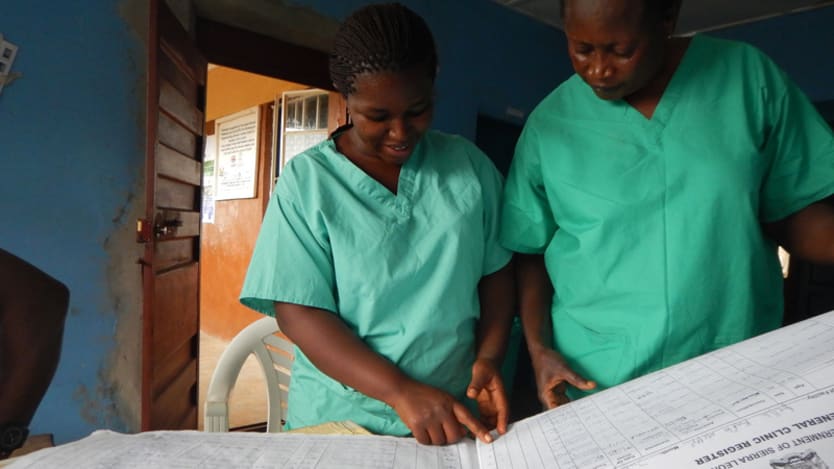
SAN FRANCISCO — The impacts of climate change, from air pollution to extreme weather events, to disruptions to food and water systems, will pose the greatest threats to global health in this century, and health leaders say it’s time for the sector to be a more active participant in the global climate debate.
“The prism through which the climate crisis is viewed is very abstract for lots of people, and not connected with people’s lives,” Rob Glaser, founder and CEO of RealNetworks, whose Glaser Progress Foundation was a sponsor for the recent Global Climate and Health Forum, told Devex. “You have to be fearless in talking about the narrative in human terms, not to exclusion of the science, but as a fundamental prism.”
At the climate and health forum, held at the University of California San Francisco earlier this month, attendees discussed ways that climate action across a number of sectors could not only slow global warming, but also avoid millions of preventable deaths each year.
More on the effects of climate change:
► Opinion: Lifesaving solutions to climate change we need to talk about
► In most disaster-prone region, climate change to have devastating effects, ADB report warns
► Climate change's impact on migration is strong and growing
Dozens of health organizations launched a Call to Action outlining 10 ways the global health sector can act on climate change, from making a transition to renewable energy, to ensuring that gender equality is central to climate action, to making investments at this intersection of climate and health.
“My five decades working in global health have taught me that, when we unite around a shared goal, tremendous progress can be achieved,” said Richard Feachem, director of the Global Health Group at UCSF and founding executive director of the Global Fund to Fight AIDS, Tuberculosis and Malaria. “We have the scientific and technical knowledge needed to solve the problem of climate change. Now we need to advance a shared vision and build the political will to get the job done.”
Health may have the most to gain from decarbonizing the economy, when one takes an integrated approach to climate change, health, and economics, according to research by the International Monetary Fund.
Diarmid Campbell-Lendrum, team leader for climate change and health within the World Health Organization’s Department of Public Health and Environment, showed how putting a price on carbon and weighing in the value of the lives that would be saved could lead to a 50 percent reduction in air pollution deaths.
He pointed to a number of ways leaders in health and climate are converging. WHO for instance is working on the first health report to be introduced into the Conference of the Parties to the United Nations Framework Convention on Climate Change process, ahead of COP24 in Poland this December, while health is being introduced as one of four pillars that will make up the basis of discussion at the 2019 United Nations announced last week.
“We have the scientific and technical knowledge needed to solve the problem of climate change. Now we need to advance a shared vision and build the political will to get the job done.”
— Richard Feachem, director of the Global Health Group, UCSFBeyond the UCSF event, health was also on the agenda at the Global Climate Action Summit. At the “Health: Where Climate Change Hits Home” session, panelists discussed the global health action needed to slow the pace of climate change, which is expected to cause 250,000 additional deaths between 2030-2050.
The poor are most at risk for negative health outcomes associated with climate change. With an additional 100 million people who could be pushed into poverty by 2030, according to the World Bank, making climate action should be an imperative for global health as well as the international development community.
“Air pollution has emerged as an incredibly powerful issue to advance our discussion of climate change. It’s immediate, it’s visible, it has health impacts that people recognize. And so the alliance of these two issues which stem from common causes can be a very powerful alliance,” said Howard Frumkin, who recently joined the U.K.-based Wellcome Trust as the head of the “Our Planet, Our Health” initiative. “Those of us who work on climate need to find common cause with organizations and people that work on clean air because we can advance our shared interests together.”
Glaser agrees.
“We have an opportunity to depoliticize the climate crisis and to turn it into the public health crisis it is,” Glaser said. “If I just told you there are changes in the planet that will disrupt the healthy lives of hundreds of millions of people, you’d call that the biggest public health crisis we know about.”
Search for articles
Most Read
- 1
- 2
- 3
- 4
- 5








